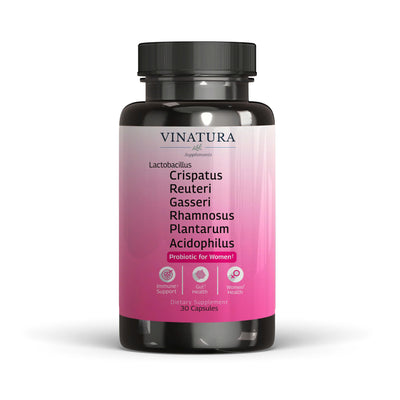
Does Spearmint Help With Nausea?
Spearmint, renowned for its refreshing flavor, extends beyond a delightful herb. Curious minds often ask, "Does spearmint help with nausea?"
Emerging studies suggest spearmint's natural compounds relieve nausea and digestive discomfort. Whether brewed into a soothing tea or incorporated into aromatherapy, spearmint's potential anti-nausea properties have sparked interest in traditional and alternative medicine.
Let's explore the soothing possibilities this fragrant herb may bring to those seeking a natural remedy for nausea.
Before exploring further, please read the disclaimer located at the end of this webpage.
Key Takeaways
- Spearmint has properties similar to peppermint, making it potentially effective in reducing nausea and vomiting.
- Studies show that spearmint essential oil, used through aromatherapy, can significantly alleviate nausea in hospitalized patients.
- Menthol in spearmint has antispasmodic effects, reducing stomach acid secretion and promoting digestion, thus minimizing nausea.
- Spearmint can be consumed as tea, essential oil, candy, or through an aromatherapy inhaler to relieve nausea and vomiting.
- Other herbs like ginger, garlic, cumin, turmeric, and caraway also contribute to stomach health and can complement the use of spearmint.
Does Spearmint Help With Nausea and Vomiting?

Most research on the effects of mint on nausea uses peppermint (a plant from the same family as spearmint) for evaluation.
The majority of studies have noted the positive effects of this plant on nausea and vomiting. However, spearmint vs peppermint when compared together are closely related and share similar properties.
The study investigated the occurrence of nausea and vomiting (N/V) in hospitalized patients who used inhaled peppermint essential oil through aromatherapy.
This was compared to combined aromatherapy/antiemetics or antiemetics alone [1].
Some studies have evaluated the combined effects of spearmint with other herbs as well.
One study investigates the use of essential oils including spearmint, peppermint, and lavender for treating postoperative nausea and vomiting. [5]
The results showed that 26.9% of patients reported complete relief from nausea after 5 minutes of treatment, and 46.2% of patients noticed an improvement.
Another study also noted that spearmint, Indian pennywort, sea buckthorn, and ginger help alleviate radiation-induced nausea and vomiting (RINV). [6]
The results indicated that peppermint essential oil is an influential independent or complementary approach for relieving N/V in hospitalized patients.
Consider research designs involving patient decision-making in studies where placebos do not contribute to holistic care. [1]
Learn more: Is Spearmint Good for Acid Reflux?
What Are the Benefits of Spearmint for Stomach to Reduce Nausea And Vomiting?
Spearmint helps minimize nausea and vomiting due to its direct impact on the stomach. So, what are the benefits of spearmint for the stomach?
Spearmint contains menthol, a compound known for its antispasmodic properties, reducing stomach acid secretion. This may decrease the risk of stomach irritation and stimulation, reducing acidity, sensation, and discomfort [3].
Moreover, menthol can stimulate bile secretion, aiding in the digestion process [2]. Besides menthol, spearmint contains various compounds such as flavonoids, tannins, limonene, and other nutrients, which may support digestion and reduce nausea.
The pleasant aroma of spearmint can stimulate the olfactory system, sending signals to the brain to reduce nausea. This fragrance can also create a sense of peace and relaxation, soothing the stomach and reducing discomfort.
While spearmint has various benefits, knowing how to use it effectively is essential.
Read more: Is Spearmint Good for Your Stomach And Digestion?
How to Use Spearmint Leaf to Reduce Vomiting and Nausea?
Spearmint Tea
Drinking spearmint tea is one of the most popular and gentle methods to harness the benefits of peppermint in relieving nausea. Warm tea helps relax the digestive muscles, reduce spasms, and alleviate the sensation of nausea.
Brewing Instructions
- Add 1-2 teaspoons of fresh spearmint leaves or a peppermint tea bag to 250ml hot water.
- Steep the tea for 5 to 10 minutes.
- Optionally, add honey or lemon for enhanced flavor.
Spearmint Essential Oil
Spearmint essential oil is an alternative for those who don't prefer tea. The aromatic compounds in spearmint, especially menthol, can stimulate the limbic system (the nerve network in the brain), promoting relaxation and reducing stress-induced nausea.
Usage
- Add a few drops of high-quality spearmint essential oil to a diffuser following the product instructions.
- Turn on the diffuser to disperse the spearmint essential oil into the air.
- If you don't have a diffuser, add a few drops of spearmint essential oil to a cotton ball, a clean cloth, or a pillow and inhale the aroma directly.
Spearmint Candy
A quick and convenient option is using peppermint candy. If you're on the go and experiencing nausea, a peppermint candy can help alleviate the condition.
Peppermint candy may stimulate saliva production, neutralize stomach acid, and reduce nausea. Additionally, peppermint candy freshens your breath.
Aromatherapy Inhaler
Aromatherapy inhalers, often infused with spearmint essential oil or other aromatic oils, provide a quick and portable option. Inhaling through the inhaler allows you to experience the gentle aroma of peppermint, aiding in stress reduction and alleviating nausea.
Other Herbs Useful for Stomach Health
In addition to peppermint, several other herbs, such as ginger, garlic, cumin, turmeric, and caraway, can contribute to stomach health.
- Ginger contains gingerol, a bioactive compound with anti-inflammatory properties that stimulate digestion. It can help reduce nausea, vomiting, and indigestion.
- Garlic is known for its potential to combat infections and support digestive health. It may contribute to relieving discomfort and promoting overall well-being.
- Cumin seeds are commonly used to alleviate feelings of bloating and heartburn. They can help soothe the smooth muscles in the digestive tract and reduce discomfort.
- Turmeric, specifically its active compound curcumin, possesses anti-inflammatory and antioxidant properties. It can reduce inflammation in the digestive tract, supporting digestive health.
- Caraway is believed to soothe stomach spasms, helping alleviate pain and discomfort. It may contribute to overall digestive comfort.
Is Peppermint or Spearmint Better for Nausea?
Both peppermint and spearmint can be effective in reducing nausea. However, with its higher menthol content, peppermint may be more effective.
Menthol is believed to be the compound responsible for its anti-nausea properties.
The choice between peppermint and spearmint depends on individual sensitivity and preference for fragrance.
Does Spearmint Help with Vomiting?
As mentioned earlier, spearmint can help minimize vomiting. This is attributed to the menthol compounds, which can soothe the smooth muscles in the digestive system, potentially reducing the sensation of nausea.
Is Spearmint Tea Good for An Upset Stomach?
Yes, Spearmint Tea is often considered beneficial for soothing the stomach when experiencing discomfort. Spearmint (Mentha spicata) possesses properties that can help alleviate pain in the stomach and promote overall digestive health.
Conclusion
In conclusion, whether spearmint helps with nausea reveals a promising avenue in natural remedies. With emerging evidence pointing to its potential anti-nausea properties, spearmint is a fragrant ally against digestive discomfort.
Whether sipped as a soothing tea or embraced in aromatherapy, the therapeutic qualities of spearmint showcase its versatility in offering relief.
As research advances, integrating spearmint into wellness practices may benefit those seeking a gentle, natural solution to alleviate nausea.
The aromatic charm of spearmint may extend beyond its delightful taste, becoming a soothing companion for individuals navigating moments of discomfort.
Related Article:
- What are the Benefits of Spearmint for PCOS?
- Benefits Of Spearmint Leaf: Medical Properties & Side Effects
References
- [1] Mohr, C., Jensen, C., Padden, N., Besel, J. M., & Brant, J. M. (2020). Peppermint Essential Oil for Nausea and Vomiting in Hospitalized Patients: Incorporating Holistic Patient Decision Making Into the Research Design. Journal of Holistic Nursing, 39(2), 126–134. https://doi.org/10.1177/0898010120961579
- [2] Spearmint: MedlinePlus Supplements. (2023). Medlineplus.gov. https://medlineplus.gov/druginfo/natural/845.html
- [3] Chumpitazi, B. P., Kearns, G., & Shulman, R. J. (2018). Review article: the physiological effects and safety of peppermint oil and its efficacy in irritable bowel syndrome and other functional disorders. Alimentary Pharmacology & Therapeutics, 47(6), 738–752. https://doi.org/10.1111/apt.14519
- [4] Petra Ch. Feyer, Maranzano, E., Molassiotis, A., Clark-Snow, R. A., Roila, F., Warr, D., & Olver, I. (2004). Radiotherapy-induced nausea and vomiting (RINV): antiemetic guidelines. Supportive Care in Cancer, 13(2), 122–128. https://doi.org/10.1007/s00520-004-0705-3
- [5] Taylor, T. L. A., Szolomayer, T. M. J., & Bolster, K. (2023). Use of Therapeutic Inhaled Essential Oil in Treating PostOperative Nausea and Vomiting. Journal of PeriAnesthesia Nursing, 38(4), e5–e6. https://doi.org/10.1016/j.jopan.2023.06.053
- [6] Dietary agents in the prevention of radiation-induced nausea and vomiting (RINV): review addressing the scientific observations, benefits, lacunae and future direction. (2022). International Journal of Radiation Biology. https://doi.org/10.1080//09553002.2024.2309899
Author

Product Disclaimer
Including an ingredient or study does not evaluate, endorse, or recommend any Vinatura product or any third-party product. Some ingredients discussed may not be used in any Vinatura product.
The content of the articles has not been evaluated by the Food and Drug Administration (FDA) and is not intended to promote or endorse any specific product. Any products sold on this website are not intended to diagnose, treat, cure, or prevent any disease.
Opinions and Endorsements
Any claims, statements, or opinions expressed in the articles are those of the author(s) and do not necessarily reflect the views or opinions of the manufacturers of the dietary supplement products. The products sold on this website are separate from the content of the articles and are not directly endorsed or associated with the information presented here.
Liability Disclaimer
The author(s) of the articles, website, and manufacturers of the dietary supplement products do not assume any liability for any potential consequences arising from the use of the information provided in the articles. Ingredient effects, dosages, and safety vary by individual, formulation, and context; some ingredients interact with medications or may be unsuitable during pregnancy or lactation. It is recommended that individuals consult with a qualified healthcare professional before making any dietary or lifestyle changes, including the use of dietary supplements.
Product Usage
Please refer to the product labels and packaging for specific usage instructions and guidelines for the dietary supplement products sold on this website.
Customer Support
For any concerns or questions regarding the dietary supplement products, please contact our customer support team, who will be more than happy to assist you.






Leave a Comment
Be the first to comment.
What do you think?